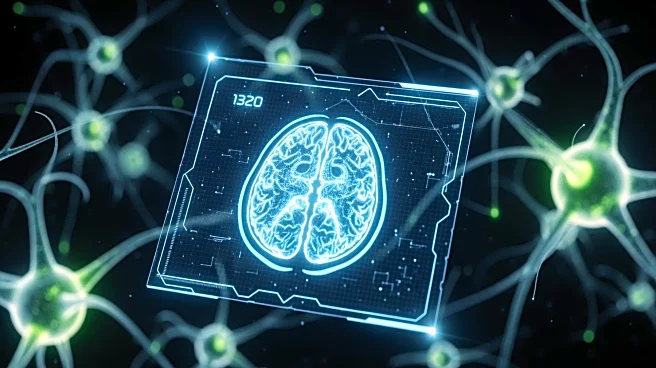What's Happening?
The landscape of neurodegenerative disease diagnostics is undergoing a significant transformation with the advent of biomarkers. These biomarkers, including pTau217, amyloid-beta, and neural-derived exosome proteins, are crucial for early detection and differential
diagnosis of diseases like Alzheimer's, Parkinson's, and frontotemporal dementia. The use of cerebrospinal fluid and blood-based biomarkers is expanding, offering a more nuanced understanding of these complex conditions. The development of imaging techniques such as PET scans and MRI further complements the diagnostic process, providing clarity in visualizing brain structures and functions.
Why It's Important?
Biomarkers are pivotal in bridging gaps between research and clinical practice, enabling early diagnosis and potentially revolutionizing treatment and patient care. They offer a promising avenue for non-invasive diagnostic techniques with high accuracy, which is essential given the irreversible damage often present by the time symptoms appear. The ability to detect diseases early can lead to more effective interventions, improving patient outcomes and potentially reducing healthcare costs associated with late-stage treatments.
What's Next?
The role of biomarkers in clinical practice is expected to grow, with ongoing research exploring their potential in diagnostics and treatment strategies. As the understanding of biomarkers deepens, their implementation in clinical settings will likely become more widespread, aiding in the development of personalized medicine approaches. The continued validation of imaging biomarkers and the exploration of genetic biomarkers will further enhance diagnostic accuracy and treatment efficacy.
Beyond the Headlines
The ethical considerations surrounding biomarker research, particularly in terms of informed consent and the invasive nature of some diagnostic methods, are crucial. The integration of biomarkers into clinical trials and their role in personalized medicine highlight the need for standardized protocols and rigorous validation processes. The potential for biomarkers to redefine neurodegenerative disease diagnostics underscores the importance of continued research and collaboration across scientific disciplines.
















